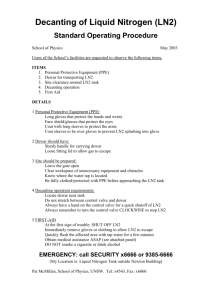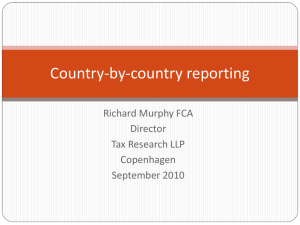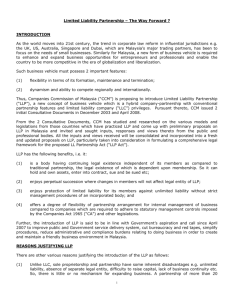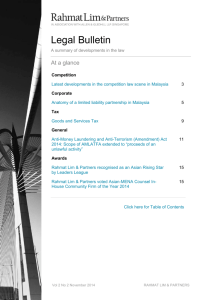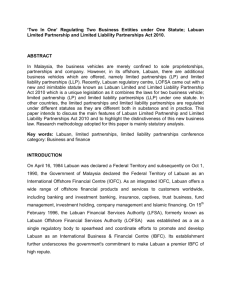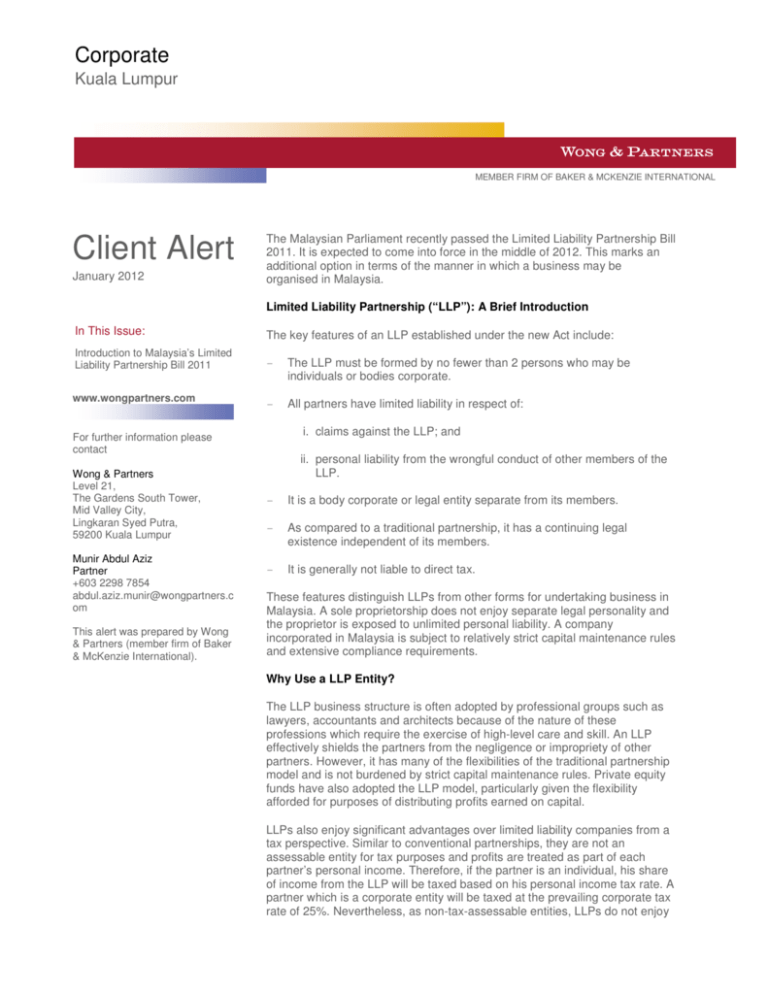
Corporate
Kuala Lumpur
MEMBER FIRM OF BAKER & MCKENZIE INTERNATIONAL
Client Alert
January 2012
The Malaysian Parliament recently passed the Limited Liability Partnership Bill
2011. It is expected to come into force in the middle of 2012. This marks an
additional option in terms of the manner in which a business may be
organised in Malaysia.
Limited Liability Partnership (“LLP”): A Brief Introduction
In This Issue:
The key features of an LLP established under the new Act include:
Introduction to Malaysia’s Limited
Liability Partnership Bill 2011
-
The LLP must be formed by no fewer than 2 persons who may be
individuals or bodies corporate.
-
All partners have limited liability in respect of:
www.wongpartners.com
i. claims against the LLP; and
For further information please
contact
Wong & Partners
Level 21,
The Gardens South Tower,
Mid Valley City,
Lingkaran Syed Putra,
59200 Kuala Lumpur
Munir Abdul Aziz
Partner
+603 2298 7854
abdul.aziz.munir@wongpartners.c
om
This alert was prepared by Wong
& Partners (member firm of Baker
& McKenzie International).
ii. personal liability from the wrongful conduct of other members of the
LLP.
-
It is a body corporate or legal entity separate from its members.
-
As compared to a traditional partnership, it has a continuing legal
existence independent of its members.
-
It is generally not liable to direct tax.
These features distinguish LLPs from other forms for undertaking business in
Malaysia. A sole proprietorship does not enjoy separate legal personality and
the proprietor is exposed to unlimited personal liability. A company
incorporated in Malaysia is subject to relatively strict capital maintenance rules
and extensive compliance requirements.
Why Use a LLP Entity?
The LLP business structure is often adopted by professional groups such as
lawyers, accountants and architects because of the nature of these
professions which require the exercise of high-level care and skill. An LLP
effectively shields the partners from the negligence or impropriety of other
partners. However, it has many of the flexibilities of the traditional partnership
model and is not burdened by strict capital maintenance rules. Private equity
funds have also adopted the LLP model, particularly given the flexibility
afforded for purposes of distributing profits earned on capital.
LLPs also enjoy significant advantages over limited liability companies from a
tax perspective. Similar to conventional partnerships, they are not an
assessable entity for tax purposes and profits are treated as part of each
partner’s personal income. Therefore, if the partner is an individual, his share
of income from the LLP will be taxed based on his personal income tax rate. A
partner which is a corporate entity will be taxed at the prevailing corporate tax
rate of 25%. Nevertheless, as non-tax-assessable entities, LLPs do not enjoy
Client Alert
corporate tax benefits which are normally available to limited liability
companies.
Comparisons to the Existing Regime
Prior to the introduction of the new Act, it was only possible to establish a LLP
in Malaysia under the Labuan Limited Partnerships and Limited Liability
Partnerships Act 2010. As a general rule, Labuan entities are classified as
non-residents for foreign exchange control purposes. Payments or
contributions made to such entities by Malaysian residents constitute
investments abroad and may be subject to limits imposed by Bank Negara
Malaysia under the Exchange Control Notices of Malaysia.There is also no
clear guidance on the manner in which the issuance of interests in such
partnerships was regulated under Malaysia’s securities laws. Such limitations
impaired the attractiveness of Labuan limited liability partnerships.
The Act is generally similar to Singapore’s Limited Liability Partnership Act
2005 (“Singaporean Act”) except:
-
The Act specifically forbids the establishment of multi-disciplinary
professional LLPs in Malaysia.
-
Unless otherwise stipulated in the LLP Agreement (“Agreement”), no
partner shall assign his or her interest in the distributions or capital of the
LLP without the consent of all partners. The opposite default position is
adopted in Singapore.
Governance
The compliance requirements of LLPs are less onerous compared to
companies:
-
A LLP is required to keep its accounts up-to-date to reflect its financial
position. Failure to do so may lead to prosecution and penalties.
-
However, the accounts of a LLP are not required to be audited unless
stated otherwise in the Agreement, nor is it required to file its accounts
with the Registrar of Limited Liability Partnerships (“Registrar”).
-
A LLP must lodge with the Registrar an annual declaration of solvency or
insolvency.
-
It is mandatory for a LLP to have a Compliance Officer (the equivalent of
a ‘Manager’ under the Singaporean Act) appointed either from amongst
the partners or persons qualified to act as secretaries under the
Companies Act 1965, who is a citizen or permanent resident of Malaysia
and ordinarily resides in Malaysia. Such officer may be held personally
liable for administrative penalties under the Act unless he satisfies the
court that he should not be so liable.
Effect of the New Legislation
The new legislation lead to the conversion of some conventional partnerships
or small private limited companies to LLP status. Partners of partnerships will
have the benefits of limited liability. Small and medium-sized enterprises being
run as limited liability companies may convert into LLPs to avoid onerous
requirements applicable to maintaining a corporate entity. Nevertheless, such
conversion does not absolve the LLP from liabilities and obligations which
arose from contracts entered into prior to the conversion.
2
Corporate 2012
Client Alert
©2012 Wong & Partners. All rights reserved. Wong & Partners is a member firm of Baker & McKenzie International, a Swiss Verein with
member law firms around the world. In accordance with the common terminology used in professional service organizations, reference to a
"partner" means a person who is a partner, or equivalent, in such a law firm. Similarly, reference to an "office" means an office of any such
law firm.
This may qualify as “Attorney Advertising” requiring notice in some jurisdictions. Prior results do not guarantee a similar outcome.
3
Corporate 2012

